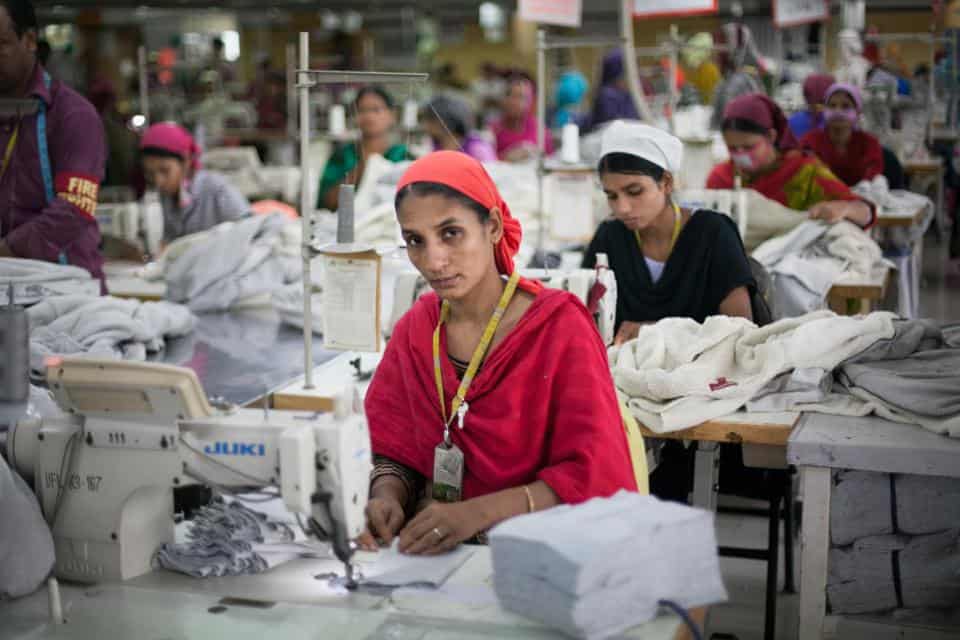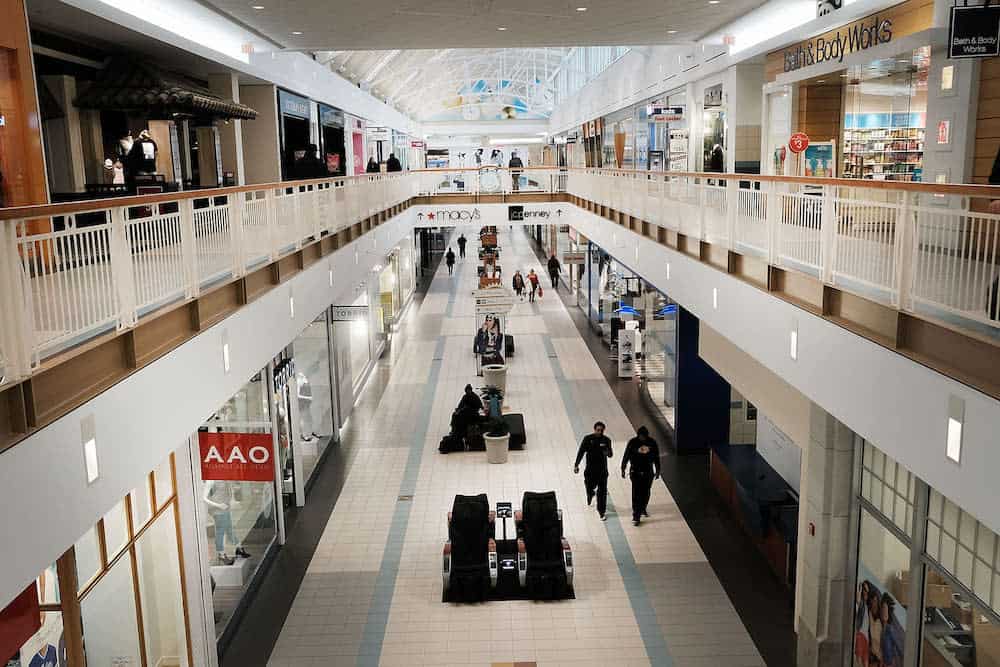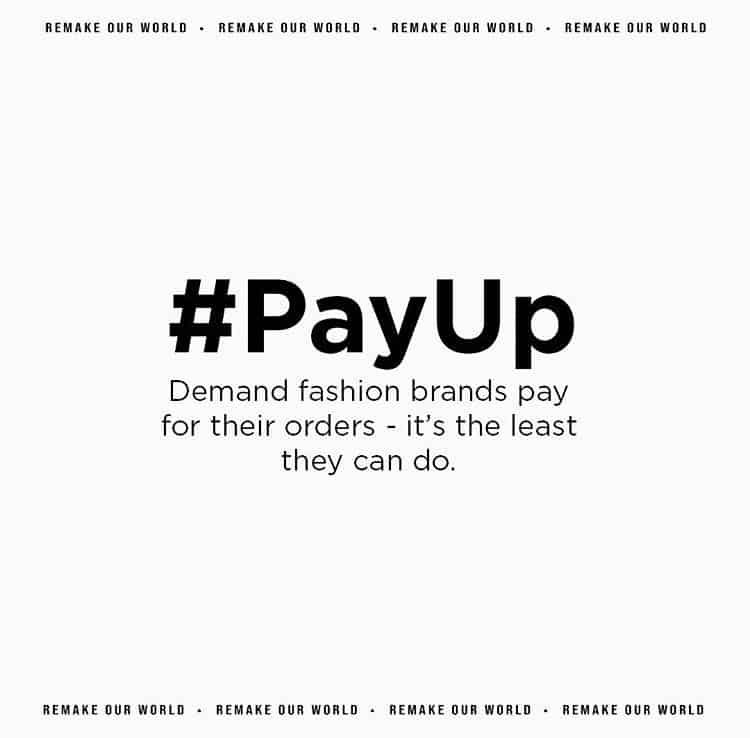As the number of coronavirus cases grows each day, the economic and human fallout of the pandemic has only worsened. There isn’t a sector of the economy COVID-19 won’t impact. This virus has left workers across the globe vulnerable, wondering when, or even if, their next paycheck is coming.
Among those concerned are millions of garment workers (80% of whom are women of color) whose main source of income has evaporated over the past several weeks. In an industry without proper health precautions or financial safety nets, the coronavirus has put the lives and livelihoods of garment workers in danger.
From health care to job security, this outbreak is impacting garment workers on every level. First and foremost, the failure of many factories to institute adequate social distancing has put their employees’ lives on the line.
Unsafe Working Conditions
At this point the CDC’s guidelines for social distancing are clear: People need to maintain “six feet of distance from others.”
The fact of the matter is, many of the factories that produce our clothes don’t have the physical capacity to give each worker six feet of space. If even one worker is carrying the virus, these close quarters become a perfect petri dish for massive COVID-19 outbreaks.

Furthermore, employers are failing to provide adequate protective equipment for workers once they arrive in the factories. Amnesty International has received reports from garment workers in Egypt disclosing that factories are expecting their employees to provide masks, gloves, and sanitizers at their own expense.
Even the factories that are trying to provide sanitation equipment to their employees may be falling short. A compliance report from Better Factories Cambodia found that 30 percent of factories didn’t have adequate handwashing stations or adequate access to soap. Without access to basic sanitation, workers are at greater risk of contracting the virus.
If a worker does contract COVID-19, factories offer little to no support. Paid sick leave is an uncommon luxury and access to health care can be an insurmountable obstacle for many garment workers.
If workers are locked in close quarters with inadequate sanitation, it becomes not a question of if they will contract this virus, but when. This situation isn’t hypothetical.
Workers in similar conditions in South Dakota are already seeing a massive outbreak, with 640 of the state’s coronavirus cases linked to their production plant. If companies continue failing to enact adequate safety measures, more and more factories will become hotspots for COVID-19.
Unfortunately, as this pandemic grows, it’s becoming clear that a lack of health care precautions may be only one of a garment worker’s concerns. More and more factories have been closing their doors in the wake of COVID-19, leaving millions without any financial support.
Massive Factory Shutdowns and Financial Insecurity
This crisis is hitting the garment industry on both sides. Lockdowns and outbreaks have essentially dried up much of the raw material supply chain.
In Vietnam, where 60-75% of raw materials used in textiles come from China, factories are struggling to keep up with production. At least 15 factories in Myanmar have closed their doors as a direct result of this shortage, leaving 10,000 workers without jobs.
The second massive economic hit came as the coronavirus began to spread widely through the rest of the world. As stores closed their doors and mass layoffs hit world markets, the demand for clothes took a nosedive.

Large companies like Nike and Gap are already reporting massive losses that are expected to grow as the virus takes hold in North America. Without shoppers to fill their stores, many brands are canceling or suspending orders.
Generally, brands aren’t expected to pay for orders until they’ve been shipped. If an order is suspended, payments can be suspended as well. This puts the financial burden on factory owners, who are still on the hook for both raw materials and employee salaries.
Without the influx of new payments, factories will be unable to keep their doors open. Dr. Rubana Huq, President of the Bangladesh Garment Manufacturers and Exporters Association has stressed the importance of brands honoring their previous orders.
According to Dr. Huq, if companies continue to abandon their factories
“4.1 million [garment workers] will literally go hungry on the streets of Bangladesh.”
What Can Be Done to Support Garment Workers Through this Crisis?
In the words of Remake founder, Ayesha Barenblat,
“Millions of [garment workers] are being laid off without being paid for the work they have already done, without severance or access to healthcare.”
She stresses that supporting these workers “is not about charity but good business practices.”
One of the biggest things we can all do to help is to hold brands accountable. It is imperative that brands honor their original orders and cover the production costs so that factories don’t have to shut down.
H&M has already responded to demands and has agreed to fulfill their previous order. However, other major retailers like Target, Walmart, and Zara still haven’t made a public commitment to cover costs.
Sustainable and ethical organizations are banding together, calling for major retailers to support vulnerable workers. You can support the efforts of Remake, Workers Rights Consortium, and Clean Clothes Campaign in their demands for an emergency COVID-19 relief fund for garment workers.
4 Ways You Can Help
1) Sign Remake’s petition demanding that brands #PayUp. Over 250,000 people have signed so far!
2) Share this image on social media and include a link to the petition to magnify your impact.

3) Donate to an emergency fund supporting garment workers in Bangladesh and beyond.
4) If you’re able to, support Eco-Stylist approved brands who are doing everything in their power to take care of their workers in this period of uncertainty.
One great example is Adelante Made-to-Order. They set up an emergency COVID-19 fund to support workers through this challenging time.
It’s on all of us to ensure garment workers are protected during the pandemic. Let’s do our part.

Lily Rosen Marvin studies English and Creative Writing at the University of Iowa. When she’s not writing about sustainable fashion, Lily can be found hiking, reading outside, or binge-watching 30 Rock.









